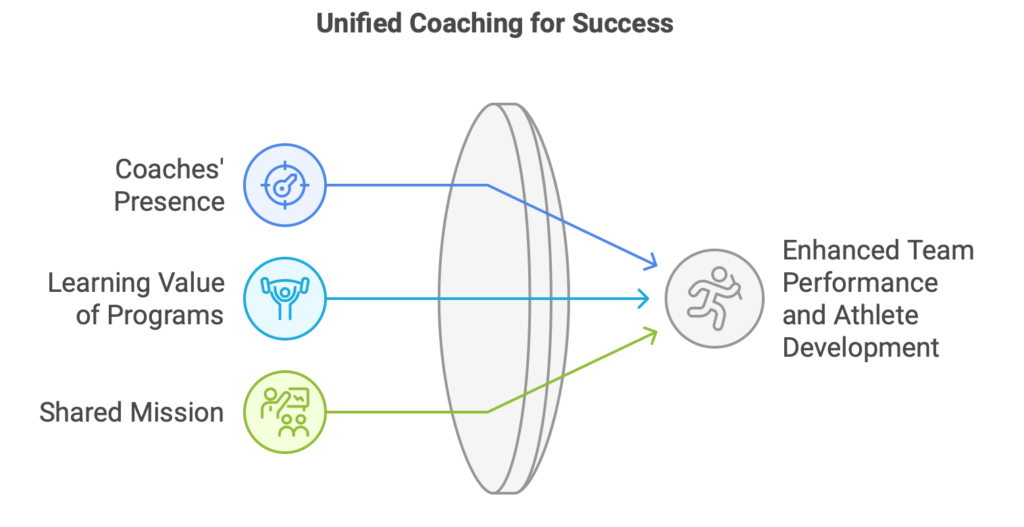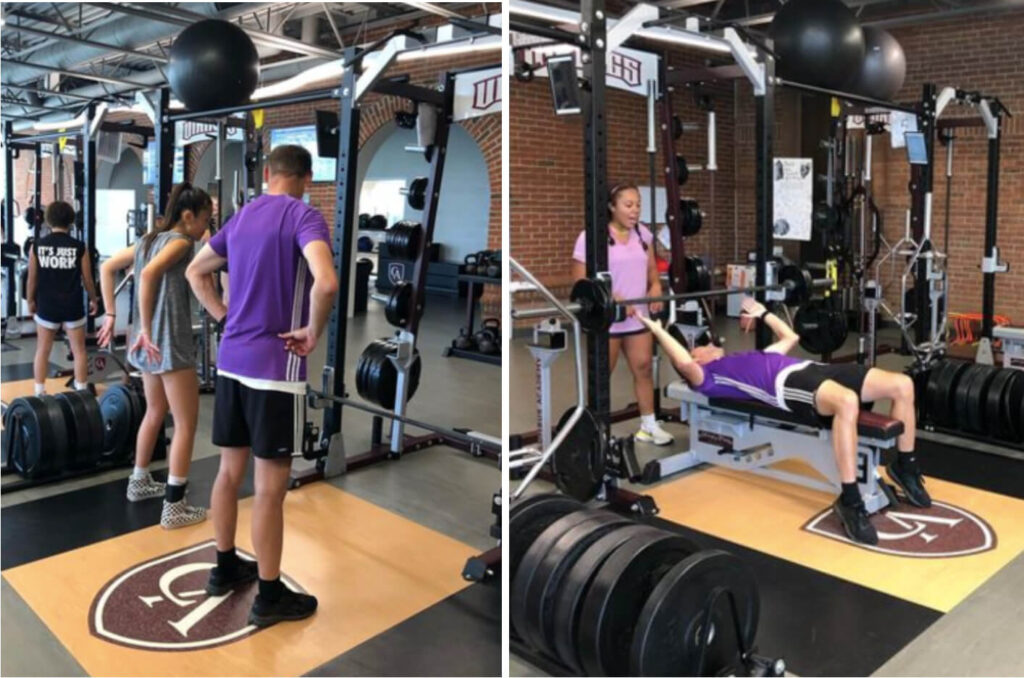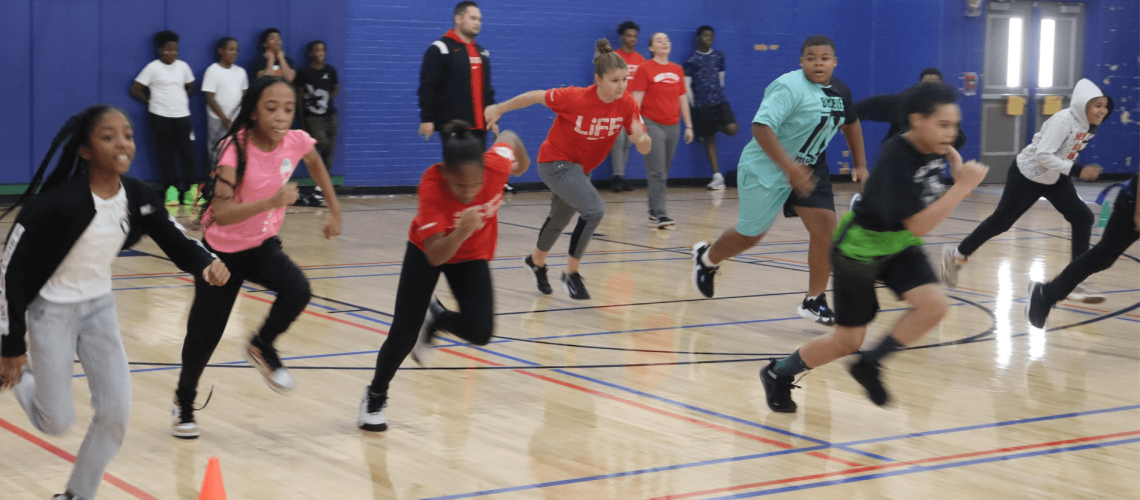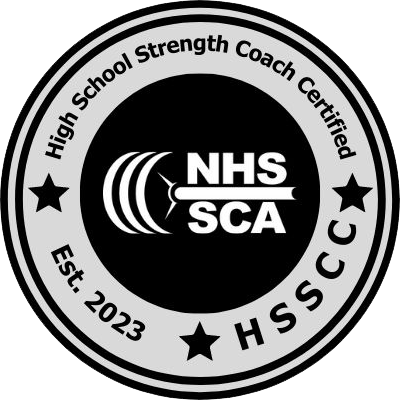By Shelby Reichle, MS, CSCS
Building relationships with new coaches is not just an optional part of our roles as strength and conditioning professionals; it’s a cornerstone for cultivating thriving athletic programs. During a recent conversation with my manager, I realized that creating genuine connections with new coaches is a process worth sharing. These strategies are designed not only to bridge gaps but also to foster collaboration, commitment, and mutual respect for the benefit of our athletes.
As you read, I encourage you to share your own tips and experiences so we can all grow together in this crucial aspect of our work.
Why Building Relationships With New Coaches Matters
1. Coaches’ Presence Drives Team Success
Teams perform better in the weight room—through consistent attendance, effort, coachability, and camaraderie—when their coaches are actively involved. The impact is even greater when coaches participate in the sessions themselves. Athletes thrive when they see their coaches modeling commitment and enthusiasm for training.
2. Coaches Are Still Learning the Value of Strength Programs
Not every coach has had the chance to work with a dedicated strength and conditioning professional. Many are new to structured athletic performance programs. This creates an opportunity to advocate for the value of these programs and demonstrate the tangible benefits they bring to athletes and teams.
3. Coaches Are Allies in Our Mission
At its core, our work isn’t just about building stronger athletes—it’s about shaping better people. Coaches share this mission. Building relationships with them enables us to work as a team to serve our athletes better, both on and off the field.

How to Build Relationships With New Coaches
1. Meet in Person
Start with an email introducing yourself and extend an invitation to meet face-to-face. Use this meeting to discuss their background, coaching philosophy, and goals for their team. These conversations often go beyond strategies—they build trust and lay the groundwork for meaningful collaboration.
2. Encourage Coaches’ Presence in the Weight Room
Explain the benefits of their presence at every session. It’s an opportunity for coaches to connect with athletes, have one-on-one conversations, and even get in their own workouts. Athletes respond positively to seeing their coaches actively engaged in their training.
3. Maintain Weekly Communication
Send weekly emails to inform coaches about schedules, updates, and reminders. This simple act keeps everyone on the same page and reinforces the importance of the weight room as part of the team’s overall strategy. Here’s a link to a sample weekly communication email I sent recently.
4. Track and Share Attendance
Use a color-coded attendance system to provide visual feedback on athlete commitment. Share this data with coaches to help them understand the correlation between attendance, performance, and injury prevention. Here’s a link to the document I use for attendance.
5. Involve Coaches in the Process
Invite coaches to participate in learning opportunities, such as teaching them to perform key lifts alongside their athletes. This hands-on approach builds their understanding and strengthens their bond with the team.

The Bigger Picture
When coaches are actively involved in the weight room, the benefits ripple throughout the entire school. It’s not just about individual athletes or teams—it’s about creating a culture of excellence, accountability, and growth. Head Strength and Conditioning Coach Scott Meier at Farmington High School exemplifies this through a graphic showcasing the impact of weight room participation on the school’s athletic culture.

The principles in this article echo the core disciplines taught in the High School Strength Coach Certified (HSSCC) program. By fostering collaboration between coaches, enhancing team engagement, and building a culture of trust and accountability, the HSSCC empowers coaches to develop stronger connections and create impactful athletic programs. Ready to strengthen your coaching relationships and elevate your program? Join the NHSSCA and begin your HSSCC certification journey today!
Share Your Insights
I’d love to hear how you’ve built relationships with new coaches. What strategies have worked for you? What challenges have you faced? Let’s collaborate and learn from each other to continue making a difference in the lives of our athletes.
Shelby Reichle, MS, CSCS, is an Athletic Conditioning Specialist with The Ohio State University Wexner Medical Center. Through her role at OSU, she is contracted to Columbus Academy to provide athletic performance services to all athletes, grades 6-12, as well as Capital University to work with their women’s basketball and women’s volleyball teams.



